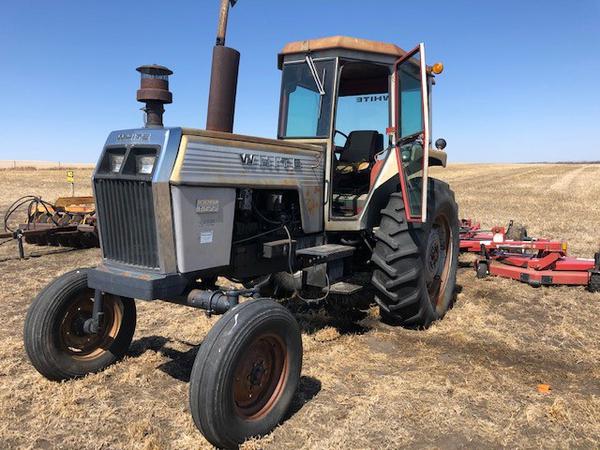Register an account with RME to store your favorite equipment and easily compare between units.
Register—Article originally sourced from Manitoba Co-Operator Publication
Menzies urges farmers to prioritize their mental health
A well-known and respected farm voice has lent his voice to the growing chorus calling for farmers to mind their mental health.
Former farm leader and federal cabinet minister Ted Menzies had a blunt and personal message about farmers for the Commons agriculture committee, which is studying mental health issues in agriculture.
“We’re very reluctant to speak about it or to anyone about it, and that’s our biggest challenge as farmers,” he said. “It’s a great life and farmers are a tough bunch. We’re six feet tall and bulletproof and don’t ever tell us we’re not. Until we start having troubles. It’s not just men, it’s women as well.”
Among the unique stresses facing producers are commodity market fluctuations, trade deals around the world, skeptical consumers wanting to know more about food production, government interference and food trends, he said.
Weather exerts a special stress, he said.
“There’s no larger stress than watching your entire year’s investment and effort become the equivalent of this carpet on the floor in 10 minutes,” he said. “That’s a challenge with any producer, whether it’s issues with livestock or whether it’s grains.”
Some social media comments on modern agriculture attacking public trust in farmers raise questions about “how do we gain the public’s trust that we are doing the right thing?” he said.
“It’s the same people who begrudge a farmer becoming larger to survive who used to shop at a corner grocery store and now they shop at the big-box stores for the same things.”
One answer is to tell the public that “we consume the same food that we sell to our customers, and we do the best to provide the safe and nutritious food supply,” he said.
The solitary nature of the work also reinforces the stress. During busy seasons, 18 to 20 hours are the norm.
“We have a very unique work-life balance. We live on our factory floor. You look out the window and you see something to do every time you look out,” he said. “This should be done, that should be done. How do you balance that with making sure you spend time with your family? That’s one of the challenges, the guilt of not spending enough time with your family.”
Then there comes the time when the stresses overwhelm someone. Menzies said the toughest speech he ever made “was a eulogy to a church filled with over 500 people, two children, a mother — a wife — and the grieving parents of my best friend. What do you tell them? Do you say, I failed because I didn’t see that?
“You can’t tell them they failed because they didn’t see it. Therein lies the importance of what you’re studying at this committee, because I still wouldn’t know what to tell them, and I don’t think many of us would. That’s why we need professional help. We need to encourage people to speak up, to stand up for themselves and not succumb to the stigma of it being a mental problem, because it’s no different than any other challenge we face or any other disease. It’s good that we’re talking about this at this committee.”
Farmers can be their own worst enemies, he said, thinking they can go it alone and need no help.
“I did that for a while, until I got a phone call one Sunday morning from a little girl who said, ‘Daddy’s on the floor and Mommy’s in church. I can’t wake him up,’ and neither could I when I got there,” Menzies said. “He was the same age as me. I went home and said to my wife, ‘I’m going to change my way of doing things,’ and I hired a couple of people to help me and I took some of that stress out of my life.
“If you can’t recognize that, if no one’s helped you recognize those sorts of things, you continue doing it until you end up a casualty lying on the floor. I rethought my responsibility to the farm, and I rethought my responsibility to my family, and I knew which one needed to take priority.”
Share This Article:





